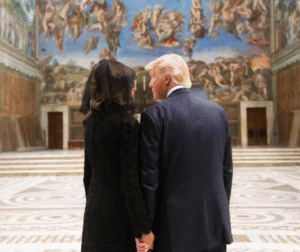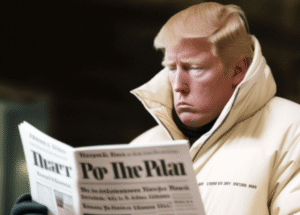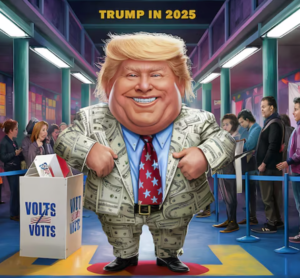$BTC $ETH $USDT
#Bitcoin #Crypto #Cryptocurrency #BTC #TrumpAdministration #EricTrump #CryptoRegulation #CryptoTaxFree #Blockchain #DigitalAssets #CryptoNews #CryptoFuture
Eric Trump, executive vice president of the Trump Organization and son of the President-elect, has provided renewed clarity on the Trump administration’s stance on cryptocurrency, identifying Bitcoin as a pivotal element of its economic vision. Speaking exclusively in an interview, Eric Trump referred to Bitcoin as “the future” and outlined plans for a comprehensive crypto agenda in alignment with his father’s forthcoming presidency. The announcement seemingly underscores a significant shift in the administration’s financial priorities, particularly favoring digital assets over traditional systems. This declaration could also spur renewed investor interest in cryptocurrencies, particularly Bitcoin, given its dominant position in the market and the broader implications for the digital economy.
Eric Trump’s remarks come at a time when Bitcoin has already witnessed an impressive recovery in price and adoption after experiencing a volatile 2022. The broader crypto market, represented by assets like $ETH and $USDT, has consistently aimed to develop solutions that integrate blockchain technology within mainstream applications. However, regulatory uncertainty and taxation challenges have often clouded the long-term outlook for cryptocurrencies. The younger Trump explicitly called for tax-free initiatives surrounding cryptocurrencies, suggesting his father’s administration may adopt pro-crypto policies aimed at spurring innovation while maintaining U.S. dominance in blockchain technologies. Such a move, if realized, would align with the Republicans’ recent emphasis on fiscal conservatism and deregulation to promote economic growth.
Market analysts remain divided over whether the “tax-free” proposal is feasible. Critics argue that relinquishing tax revenue on digital asset transactions could further strain government budgets but acknowledge that it might also attract institutional investors and businesses to the U.S. crypto market. On the other hand, proponents contend that a streamlined and investment-friendly framework could make the United States a global hub for blockchain and cryptocurrency innovation. Bitcoin’s financial ecosystem, already accounting for a market cap above $500 billion, would stand to gain immensely from favorable policy shifts. Market sentiment could also shift bullish should these policy changes materialize, propelling both institutional adoption and retail interest.
The declaration from Eric Trump also challenges the ongoing regulatory narrative pushed by global organizations, which often emphasize tightening control over cryptocurrencies to address illicit activities and tax losses. However, if the Trump administration succeeds in actualizing the proposed crypto-friendly framework, the geopolitical and economic repercussions could be significant. Rival economies may need to re-evaluate their crypto policies under the pressure of capital and talent migration toward the United States. While uncertainties surrounding such sweeping institutional changes remain, the pro-crypto rhetoric signals growing recognition of digital assets as a vital component of the future financial system—a sentiment likely to drive momentum across blockchain ecosystems.







Comments are closed.